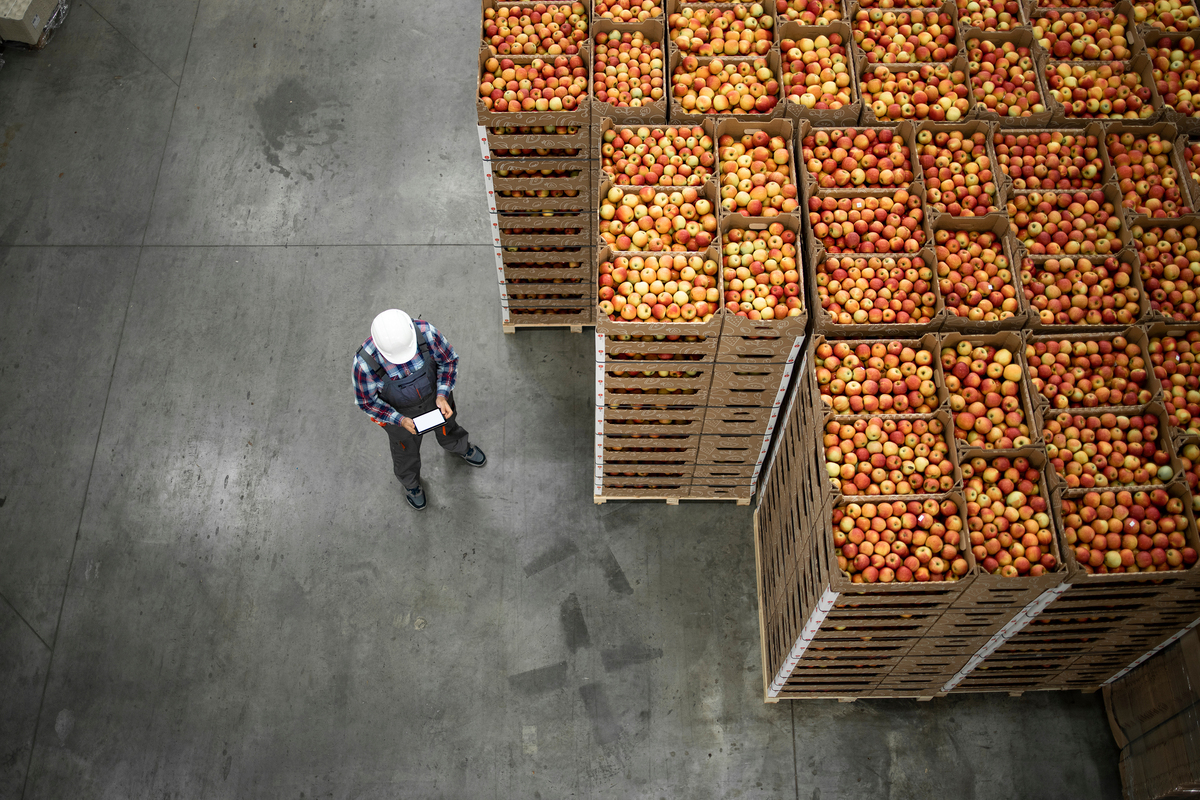Empowering growth through operational resilience in the F&B sector
Sponsored by dss+How to grow and thrive in a complex regulatory landscape

The food and beverage (F&B) industry is a vital and evolving part of the European economy, and is now facing significant challenges from a changing regulatory landscape, digital transformation, challenging supply chain risks and rapid innovation.
In the coming months, dss+ will offer practical insights and solutions for these issues, tailored for C-suite executives. This six-part series will explore the latest challenges, responses and market access opportunities.
Our aim is to highlight effective strategies for operational resilience that help F&B companies thrive amid volatility and gain a competitive edge.
Articles in this series will explore:
- How to grow and thrive in a complex regulatory landscape
- Strengthening supply chain resilience
- Embracing data-driven digital transformation
- Implementing agile and lean manufacturing
- Transforming performance through employee engagement
- Cultivating a continuous improvement mindset

Staying compliant while prioritising growth is a major challenge for the food and beverage sector. Evolving regulations, including food safety and labelling requirements, call for high industry standards. The addition of new ESG regulations heightens compliance challenges, and success depends on balancing investments in regulations, meeting consumer demands and offering innovative, affordable products while ensuring profitable growth. What strategic actions can the C-suite take to thrive in this complex compliance landscape?
Keep pace with regulations
Keeping up to date with national and international regulations is critical for F&B businesses, particularly regarding sustainability. The Corporate Sustainability Reporting Directive (CSRD), effective in 2025, will compel large EU companies to disclose ESG-related information, significantly expanding the scope of compliance efforts.
Collaborating with various stakeholders, such as suppliers and clients, aids in navigating this regulatory landscape. Updating compliance management systems is vital for swiftly adjusting to regulatory changes, thus preventing missed growth opportunities.

Key CSRD requirements
- Environmental impact: Tracking greenhouse gas emissions, waste management and resource usage
- Social responsibility: Addressing labour practices and human rights within supply chains
- Governance: Ensuring transparency and ethical conduct in business operations
Anticipating new regulations
Beyond managing current regulations, F&B companies must foresee upcoming compliance requirements. Stricter rules covering food additives and sustainable packaging may emerge, alongside broader ESG reporting mandates.
Companies need to develop compliance roadmaps and allocate resources strategically. For instance, as personalised nutrition gains popularity, companies might face new regulations on labelling and safety standards. Staying informed through industry associations and monitoring services gives the option to comment and shape emerging regulations in the F&B sector.
Proactively managing compliance risk
With the fragmented regulatory environment across EU states, multinational firms face additional burdens. Compliance requires detailed record-keeping, regular audits and traceability of all taxable resources.
Regular internal audits and a robust risk management culture help organisations prevent compliance issues before they escalate. Investing in training and technology to manage regulatory risks is crucial.
Technology – specifically compliant software and data analytics – can automate processes, minimising administrative loads. External resources, including qualified consultants, can supplement internal expertise and ensure proactive compliance management.
Don’t underestimate compliance costs
Emerging regulations often introduce unanticipated costs. For example, the ban on single-use plastics has compelled F&B companies to rethink packaging strategies, while sustainability regulations demand costly investments.
While rising compliance costs are challenging, non-compliance can severely damage brand reputation and profitability. Setting realistic compliance budgets ensures companies can react to regulatory challenges quickly and efficiently to protect market access and growth ambitions.

Strengthening consumer trust and brand reputation
Product recalls and regulatory penalties deeply impact consumer trust. High-profile cases, such as E. coli outbreaks in Europe, highlight the reputational risks involved. According to the European Institute of Innovation and Technology (EIT)’s Food Trust Tracker Report 2023, public trust in the food sector is dwindling, with less than half of Europeans expressing confidence in food safety and quality.
Identifying potential compliance risks throughout the value chain enables organisations to put in place and prioritise preventive measures. Transparency in reporting compliance efforts fosters consumer trust and demonstrates accountability.
A strategic approach to compliance
Product development and innovation are vital for growth in the F&B sector but must balance cost, regulatory compliance and consumer demand.
F&B companies need a strategic approach to ensure new products are appealing, compliant and economically viable for sustainable growth.
Ultimately, companies must balance their product portfolio based on regulatory requirements, shareholder demands and return on investment (ROI). A strategic approach helps achieve the balance between sustainable and profitable growth.
Key takeaways
- Develop a comprehensive compliance roadmap to navigate regulations effectively
- Anticipate regulatory changes by monitoring safety and sustainability trends
- Leverage technology for compliance efficiency, ensuring accurate tracking and task automation
- Build strong supplier partnerships and prioritise a culture of compliance awareness
- Manage long-term financial and reputational risks by adhering to consumer trust and transparency
About dss+
dss+ is a leading provider of operations management consulting services with a purpose of saving lives and creating a sustainable future. dss+ enables companies to build organisational and human capabilities, manage risk, improve operations, achieve sustainability goals and operate more responsibly. If this article sparked your interest, our team of F&B experts will be delighted to hear from you. Contact us today!
Marcos Salla, Global Director, Agriculture, Food and Beverage, dss+

Business Reporter Team
Most Viewed
Winston House, 3rd Floor, Units 306-309, 2-4 Dollis Park, London, N3 1HF
23-29 Hendon Lane, London, N3 1RT
020 8349 4363
© 2025, Lyonsdown Limited. Business Reporter® is a registered trademark of Lyonsdown Ltd. VAT registration number: 830519543





